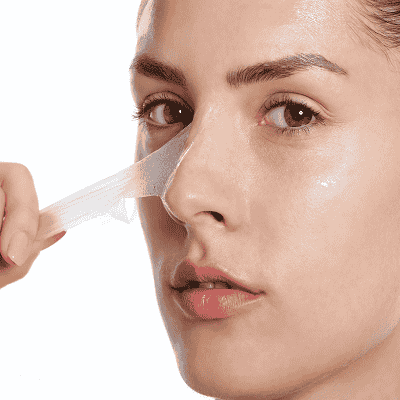What to Expect During Your First Skin Peel Session in Oman

Introduction to Skin Peels
A skin peel, also known as a chemical peel, is a dermatological treatment that uses a chemical solution to exfoliate the top layer of the skin. This process at Skin Peels Clinic in Oman helps to address various skin concerns, including acne scars, hyperpigmentation, wrinkles, and uneven skin tone. Depending on the depth and intensity, skin peels range from superficial peels to medium and deep peels.
Oman's warm climate and frequent exposure to the sun make skin care particularly important for residents. Skin peels are increasingly sought after as a solution for reversing sun damage, improving skin texture, and enhancing overall skin health.
Types of Skin Peels
Before delving into what to expect during your first session, it’s helpful to understand the types of peels available. The choice of peel will depend on your skin type, the issues you want to address, and your dermatologist’s recommendations.
1. Superficial Peels
- These are the mildest form of chemical peels.
- Use alpha-hydroxy acids (AHAs) or beta-hydroxy acids (BHAs) such as glycolic acid or salicylic acid.
- Ideal for addressing minor imperfections, improving skin texture, and giving the skin a radiant glow.
2. Medium Peels
- Use stronger acids like trichloroacetic acid (TCA).
- Penetrate deeper into the skin layers.
- Target more pronounced issues such as acne scars, sun damage, and moderate wrinkles.
3. Deep Peels
- Often use phenol or high-strength TCA.
- Provide dramatic results but require more downtime and recovery.
- Suitable for deep wrinkles, significant sun damage, and severe discoloration.
Preparing for Your First Skin Peel Session
Preparation is key to ensuring the best outcomes from your skin peel. Your dermatologist or esthetician will provide specific instructions tailored to your skin type and the type of peel you’ll be undergoing.
Initial Consultation
Before your first peel, you’ll likely have a consultation where your skin will be assessed. During this session:
- Discuss your skin concerns, medical history, and any allergies.
- Be honest about any skincare products you are using, especially retinoids, as they may increase skin sensitivity.
- Learn about the most suitable peel for your needs and the expected results.
Pre-Peel Instructions
In the days leading up to your session:
- Avoid Sun Exposure: Protect your skin from UV rays to reduce sensitivity.
- Discontinue Harsh Products: Stop using exfoliants, retinoids, or any products containing acids for about a week before the session.
- Hydrate Your Skin: Use gentle moisturizers to keep your skin well-hydrated.
- Refrain from Waxing or Threading: Avoid any hair removal treatments on your face at least a week before the peel.
What Happens During the Skin Peel Session?
Walking into the treatment room for your first skin peel can be a mix of excitement and nervousness. Here’s what typically happens:
Step 1: Skin Cleansing
The session begins with thorough cleansing to remove dirt, oil, and makeup. This ensures the peel solution penetrates evenly.
Step 2: Prepping the Skin
- A pre-peel solution may be applied to further clean the skin and adjust its pH.
- In some cases, a mild anesthetic or numbing cream is used for medium or deep peels to minimize discomfort.
Step 3: Application of the Peel
- The chemical solution is carefully applied to the skin using a brush, cotton pad, or gauze.
- You may feel a tingling, stinging, or warming sensation, which varies based on the type and strength of the peel.
Step 4: Monitoring
- The specialist monitors your skin’s reaction throughout the process.
- The peel is left on for a specific duration, ranging from a few minutes to half an hour.
Step 5: Neutralization
- For certain peels, a neutralizing agent is applied to stop the chemical reaction.
- In other cases, the peel naturally neutralizes itself and is washed off with water.
Step 6: Post-Treatment Application
After the peel is removed, a soothing moisturizer or calming mask may be applied. Sunscreen is a must before you leave the clinic, as your skin will be particularly sensitive to UV exposure.
What to Expect Immediately After the Peel
The post-treatment phase varies depending on the type of peel you’ve undergone.
Superficial Peel
- Expect mild redness and a slight tingling sensation.
- Your skin may feel tighter and begin to peel subtly over the next few days.
Medium Peel
- Redness, swelling, and a burning sensation are common.
- Visible peeling begins within two to three days and may last up to a week.
Deep Peel
- Significant redness and swelling occur immediately after the treatment.
- Peeling is more intense and lasts for one to two weeks.
- Recovery requires more care and involves avoiding the sun entirely.
Post-Peel Care and Recovery
Post-treatment care is critical to achieving optimal results and minimizing complications.
General Tips
- Moisturize Regularly: Keep your skin hydrated to aid the healing process.
- Avoid Sun Exposure: Wear broad-spectrum sunscreen (SPF 30 or higher) daily and avoid prolonged exposure.
- Avoid Picking or Peeling: Let the skin shed naturally to prevent scarring or irritation.
- Use Gentle Products: Stick to mild, fragrance-free cleansers and moisturizers.
- Avoid Makeup: Refrain from applying makeup for at least 24-48 hours after the peel.
Long-Term Care
Once your skin has healed:
- Maintain the results with regular moisturization and sun protection.
- Consider follow-up treatments or a maintenance routine recommended by your dermatologist.
Potential Side Effects and Risks
While skin peels are generally safe, especially when performed by qualified professionals, there are potential risks to be aware of:
- Redness and irritation
- Hyperpigmentation or hypopigmentation, particularly for individuals with darker skin tones
- Scarring (rare with superficial and medium peels)
- Prolonged sensitivity to sunlight
Discuss any concerns with your provider to understand how these risks can be minimized.

Benefits of Skin Peels in Oman’s Climate
Oman’s unique environmental conditions, such as intense sunlight and dry air, can have lasting effects on the skin. Skin peels can:
- Reverse sun damage
- Hydrate and rejuvenate dry skin
- Improve skin tone and texture, addressing common concerns like pigmentation and dullness
Many dermatologists in Oman tailor their treatments to suit the specific needs of the region’s residents, offering customized solutions for environmental challenges.
How to Choose the Right Professional
When considering your first skin peel, the expertise of your practitioner plays a significant role in the outcome. Keep the following in mind:
- Check Credentials: Ensure the specialist is licensed and experienced in performing skin peels.
- Look for Personalization: A good professional will customize the peel based on your unique skin needs.
- Read Reviews: Patient testimonials and reviews can provide insights into the quality of care.
Conclusion
Your first skin peel session in Oman can be a transformative experience, helping you achieve smoother, healthier, and more radiant skin. Understanding the process, preparing adequately, and following post-peel care instructions will ensure you get the most out of your treatment. Whether you’re addressing specific skin concerns or simply looking to refresh your complexion, skin peels offer a versatile and effective solution tailored to your needs.
Approach your first session with realistic expectations, and don’t hesitate to communicate openly with your dermatologist. With proper care and guidance, a skin peel can become a valuable step in your skincare journey, enhancing both your confidence and your skin’s natural beauty.
- Art
- Causes
- Crafts
- Dance
- Drinks
- Film
- Fitness
- Food
- الألعاب
- Gardening
- Health
- الرئيسية
- Literature
- Music
- Networking
- أخرى
- Party
- Religion
- Shopping
- Sports
- Theater
- Wellness


